Halsey Bartlett, 6th Connecticut Infantry, Civil War Letters, 1863-1864
About Seller
6270 Este Ave.
Cincinnati , OH 45232
United States
With offices in Cincinnati, Cleveland and Denver, Cowan’s holds over 40 auctions each year, with annual sales exceeding $16M. We reach buyers around the globe, and take pride in our reputation for integrity, customer service and great results. A full-service house, Cowan’s Auctions specializes in Am...Read more
Two ways to bid:
- Leave a max absentee bid and the platform will bid on your behalf up to your maximum bid during the live auction.
- Bid live during the auction and your bids will be submitted real-time to the auctioneer.
Bid Increments
| Price | Bid Increment |
|---|---|
| $0 | $25 |
| $500 | $50 |
| $1,000 | $100 |
| $2,000 | $250 |
| $5,000 | $500 |
| $10,000 | $1,000 |
| $20,000 | $2,500 |
| $50,000 | $5,000 |
| $100,000 | $10,000 |
About Auction
Oct 31, 2018
Cowan's is honored to present the Magnificent Sword Collection of William Koch in its two-day firearms, militaria, and American history auction. Cowan's Auctions dawnie@cowans.com
- Lot Description
Halsey Bartlett, 6th Connecticut Infantry, Civil War Letters, 1863-1864
Lot of 9 letters written by Union soldier Halsey Bartlett (1831-1864) during his time in South Carolina, 1863-1864. A resident of Killingly, CT, Bartlett enlisted on August 21, 1861 as a private. He mustered into Company A of the 6th Connecticut Infantry on September 3. Under the command of Admiral Samuel Dupont and General Thomas Sherman, Bartlett and his fellow members of the 6th were part of the expeditionary forces that captured Forts Walker and Beauregard near Port Royal on November 7, and they remained in occupation at Hilton Head, James Island, and Beaufort until the spring 1864, taking part in several expeditions and battles. Bartlett survived the South Carolina occupation but was killed in action on June 17, 1864 at Bermuda Hundred, VA. Bartlett's letters to his mother and teenage sister, Christina, help reconstruct an important record of the conflict as experienced along the South Carolina coast and islands.
Bartlett writes twice to Christina from Beaufort, SC, once on March 3, 1863 and again on April 2. Prior to Beaufort, the 6th Connecticut had been in Lake City, where they set fire to much of the city upon departing. Bartlett describes " a widow with three small children, that was left there that wanted to come with us. Our boats being so full and crowded, she could not come. I pitied her. . . Poor woman. I was sorry for her. We did not burn her building. All the buildings where there was families in them, we left and did not burn, but two thirds of the city lay in ashes. "
From Beaufort, Bartlett and his regiment moved to Hilton Head, where Bartlett is amazed by the Union buildup of the city, which he had last occupied a year ago: " Now what a sight comes to view on landing - a wharf one hundred feet long which we have to pass over before entering the city. . . One church, a large hospital which covers over ten acres of ground, a jail where they put prisoners. . . about thirty stores, eating houses, etc. and about twenty or twenty five dwelling houses. . . There is two long buildings where the contraband occupy or dwell. I never saw so many Negroes together in all my life as there is in these two long buildings. I should think there was all of five hundred blacks."
Next, Bartlett finds himself on Folly Island, SC, humorously describing the voyage there to his mother on May 1, 1863: " We left Hilton head and went on board the Steamer Saxon. . . and was on board till yesterday, nearly two weeks. . . There being very high seas on the boat, pitched and rocked so no one could stand or walk on the deck without falling, and to see the boys, some were very sea sick, and it was fun for me to see the, four or five at a time throwing up or turning themselves inside out and talking to themselves near crazy. " Their orders to camp on Folly Island did not specify the duration of their stay, but Bartlett hopes it isn't long, noting the variety of vermin he has already encountered: " I have seen wood ticks, ants, red spiders, sand flies, house flies, mosquitoes, snakes, lizards, and centipedes. " Later, in a letter dated May 11, he writes in better spirits, given the recent news: " We hear that Richmond is taken by General Hooker with a loss of thirty thousand men. If this is so, rebellion is near to an end."
Bartlett's next letter to Christina on May 14 conveys more positive updates: " We hear Richmond is taken and that General Jos. Hooker is giving off General Orders there. We also hear that Rebel Generals Stonewall Jackson and A.P. Hill is dead. Now if this is true, which I think is true, that the war is about to an end." When he writes again, this time to his mother on July 1, it is clear that there is still a good amount of work ahead of him before the war ends, based on his detailed description of the preparations for an attack on Morris Island. Of this, he writes in part: " Our company have for the last week been at work on the breast works at the upper end of the Island near where the Rebels are. . . and as soon as ready to work, they intend bombarding Morris Island and all points where secession is. . . when they commence, the blockade fleet will close in and give them a few shot. They have ammunition enough on this Island to last forty days a gun. . . We worked so near the Rebs that we dare not say a word louder than a whisper, nor do anything for fear of having a shell thrown at us. . . they have shelled us three or four times while at work, and one soldier from the sixty-seventh Ohio had both arms, both legs and a part of his jaw taken off by a shell."
By October of 1863, Bartlett is back in Hilton Head and writes to his mother regarding plans for the future: " You may depend upon my being at home in a year from now and staying too. I have thought some of enlisting into the Veteran Corps., but I guess not. . . This will soon pass away. " Bartlett did, in fact, re-enlist on December 24, 1863 but was killed just six months later during the Bermuda Hundred Campaign. See also Lot 614. - Shipping Info
-
Buyers are required to pay for all packing, shipping and insurance charges. Overseas duty charges are the responsibility of the successful Bidder. Be aware that for larger and/or valuable items, shipping charges can be substantial. - If there is no shipping amount on listed your invoice, you will need to make arrangements to pick up or ship your purchase through an alternative shipping company. Our shipping department can be contacted at 513.871.1670 (ext. 219) or email shipping@cowans.com. - Shipping charges include insurance for your order while in transit. If you have private insurance we will adjust your charge to include only packing and shipping. - Please allow 14 – 21 days after payment to package and ship your purchase as carefully as possible.
-
- Buyer's Premium



 EUR
EUR CAD
CAD AUD
AUD GBP
GBP MXN
MXN HKD
HKD CNY
CNY MYR
MYR SEK
SEK SGD
SGD CHF
CHF THB
THB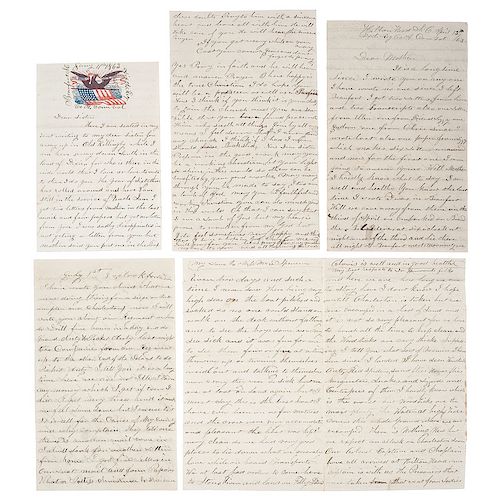

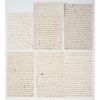
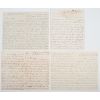
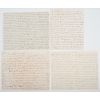
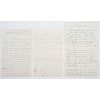
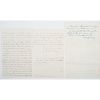

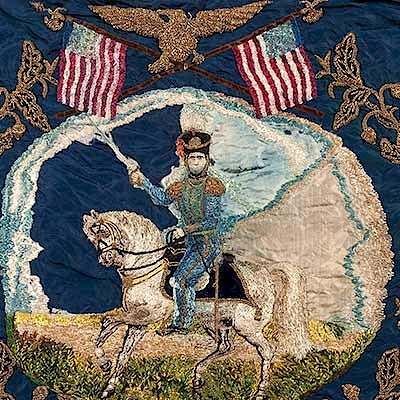




![Three Titles of Annales du Musee du Congo [Belge] Publications in Five Volumes](https://s1.img.bidsquare.com/item/m/3196/31969686.jpeg?t=1UEGcz)



